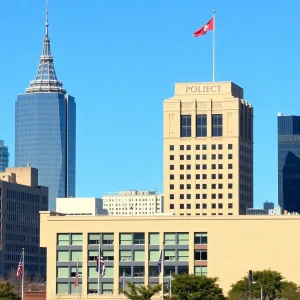A Former Energy Regulator Raises Concerns Over South Carolina Energy Infrastructure Bill
Greenville, S.C. – State legislators are in deliberation over a massive bill concerning energy infrastructure development in South Carolina. Supporters argue the bill is necessary to meet the increasing energy demands of a rapidly growing state. However, critics fear the bill provides broad unchecked authority to power companies and reduces consumers’ voices.
Critic’s Concerns about the Bill
Tom Ervin, a critic of the bill, recently resigned from his post on the Public Service Commission (PSC) to publicly voice his criticisms. He believes the bill, known as H5118, could introduce more problems than it could solve. He commented, “This whole bill lacked transparency. There’s going to be adverse consequences for all ratepayers”.
Reduced Commissioners’ Count Raises Red Flags
The original bill aims to curtail the number of commissioners from seven to merely three. Ervin opines that the move counteracts the notion of diversity and localized representation, which is essential in effective regulation. He explains, “It takes the regulatory guardrails off our longstanding tradition of having one commissioner from each congressional district.”
Controversial Natural Gas Plant in the Lowcountry
Another contentious aspect of the bill is a partnership to build a natural gas plant in Lowcountry. Critics argue this measure is eerily similar to the legislation that led to a disappointing and costly debacle almost a decade ago. The failed VC Summer Nuclear Plant project near Columbia left customers with a substantial financial burden and saw some company executives in prison.
An Attempt to Avoid Repeating History
The bill endorses a similar partnership to build the gas plant between Dominion Energy, a power company, and the state-owned Santee Cooper. Both parties insist that this venture is fundamentally different from the earlier failed project.
Regardless, critics are skeptical, warning that the situation echoes the past too closely for comfort. Ervin raises concerns about the potential financial burdens taxpayers might have to bear as a consequence of this scheme. Moreover, they argue that it’s not just Lowcountry residents who will pay the price as Santee Cooper is a state-owned entity.
Current Bill Status
The bill has gone through several stages of the legislative process, including clearing the House, reviewed in a Senate committee before landing on the Senate floor, and reduced to mere four pages from its original 80 pages before being sent back to the House. However, the legislature has an agreement that would allow them to reconvene as late as November if they can reach a compromise.
Stay Tuned for Further Developments
If the bill is not passed this year, it will be refiled next year, starting the entire legislative process anew. Ervin warns, “The fight is never over because the investors on utilities that are pushing this bill will be back next year.” Nevertheless, the utilities affirm their commitment to ensure past mistakes are not repeated and regard the bill as a necessity for the growing energy demands of the state.







